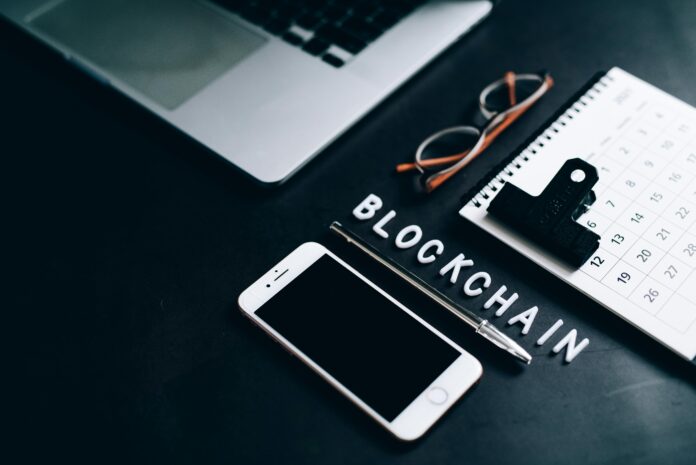Blockchain technology continues to evolve at a rapid pace, influencing various sectors, including digital identities, fintech, and AI integration. This article explores 2024 predictions for blockchain, highlights developments from 2023, and delves into how AI will complement blockchain technology in the future. As we look ahead, we’ll explore the growing use of blockchain in digital identities, the potential for blockchain in the energy sector, and its role in transforming financial technologies (fintech).
Quick Links
2024 Blockchain Predictions
Digital Identities
Blockchain’s primary use in 2024 will continue to be digital identity management. National digital ID projects worldwide are increasingly adopting blockchain as their core technology. With privacy concerns about personal data under more scrutiny, blockchain’s decentralized nature ensures that user control over data remains a priority.
Fintech Growth and Mobile Payments
The mobile money and payments sectors will see significant expansion in emerging markets. With the rise of mobile internet usage, blockchain will enable faster and more secure transactions, driving fintech innovation.
Bitcoin ETF and Institutional Investment
The U.S. is expected to approve the first official Bitcoin exchange-traded fund (ETF), opening the doors for institutional investors to explore Bitcoin as a form of “digital gold.”
The Decline and Future of NFTs
The NFT market, which saw a decline in 2023, is predicted to fade further. However, a more user-friendly and intuitive application of NFTs could emerge, reviving the industry.
Blockchain in the Energy Sector
Blockchain technology is set to make significant strides in the energy sector, particularly in decentralized energy trading and the management of renewable resources.
2023 Blockchain Recap
Digital Identity Networks and Worldcoin
In 2023, blockchain played a pivotal role in digital identity networks. Government-backed digital ID systems utilized blockchain for enhanced security. Worldcoin, a project led by OpenAI’s Sam Altman, gained attention but also sparked debates over biometric data privacy.
Blockchain in the Financial Sector
Blockchain’s role in the finance industry expanded, with open blockchains like Solana being tested for transparent payments. Visa, for instance, piloted Solana as part of a payment system upgrade.
The NFT Market in 2023
Regulators focused on the NFT space in 2023, leading to high-profile investigations of celebrities who promoted unregistered crypto assets. This led to reduced attention on NFTs throughout the year.
AI and Blockchain Technology
AI’s Role in Blockchain
AI enhances blockchain by improving the efficiency of consensus mechanisms, detecting fraud, and optimizing scalability. AI can also facilitate asset tokenization and automate processes like asset management.
Benefits of AI-Driven Blockchain Solutions
AI helps in optimizing blockchain’s performance by analyzing smart contracts, detecting vulnerabilities, and enhancing security. Machine learning algorithms are already used to predict consensus strategies and reduce energy consumption.
Challenges of Integrating AI and Blockchain
While AI provides opportunities, challenges such as AI-driven attacks, privacy concerns, and the resource-intensive nature of AI systems must be addressed. Governance and regulatory challenges also arise when combining decentralized blockchain systems with AI technologies.
Blockchain Use Cases
Cryptocurrencies and Payment Platforms
The most well-known application of blockchain remains cryptocurrency. Open blockchains like Bitcoin provide decentralized, peer-to-peer payment solutions without the need for intermediaries.
Supply Chain Management
Blockchain’s transparency is also transforming supply chain management. Retailers and manufacturers use blockchain to track goods, reduce costs, and ensure data accuracy throughout global supply chains.
Digital Identities and Public Information
Blockchain is being used to create decentralized digital identity solutions, providing users with greater control over their data. In addition, governments are utilizing blockchain for public information storage, such as land registries and academic credentials.
Blockchain FAQs
What is Blockchain?
Blockchain is a decentralized, immutable ledger where data is added chronologically and verified through cryptography. It allows for secure, transparent transactions across a distributed network.
What is a Token?
A token is a digital asset created on a blockchain, often representing ownership or participation in a system, such as a cryptocurrency or an NFT.
What is a Blockchain Fork?
A blockchain fork occurs when there is a change in the network’s software or rules, creating a divergence in the blockchain. Forks can be classified as “soft” (backward compatible) or “hard” (not compatible with previous versions).
What is a Digital Wallet?
A digital wallet is a software application used to store and manage cryptocurrency. It generates private and public keys that identify users and their transactions on the blockchain.
What are Private and Public Keys?
A private key is part of the cryptographic signature used to verify ownership of blockchain assets. The public key, broadcasted for verification, ensures that transactions are secure and authenticated.
Conclusion
Blockchain technology continues to transform industries and create new opportunities for innovation. In 2024, we can expect blockchain to enhance digital identities, power fintech innovations, and integrate further with AI to solve complex challenges. With its growing role in privacy, finance, and energy sectors, blockchain remains at the forefront of technological advancement.




[…] 2024 Blockchain Predictions: Digital Identities, Fintech, and AI’s Role in Shaping the Future. Read more […]